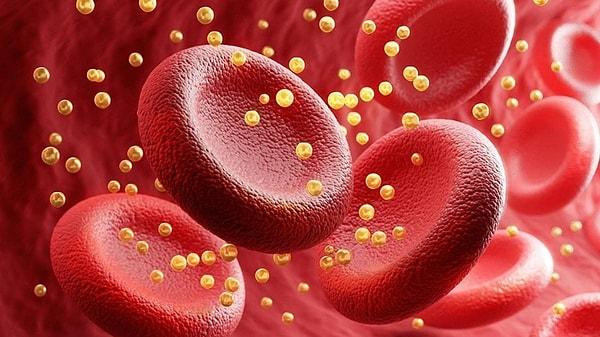What Happens To Your Body If You Fast for 7 Days?
As fasting days approach, curiosity about the effects of prolonged food deprivation and dehydration on the body arises once again. Researchers delving into the impact of extended periods without food have analyzed systemic changes occurring in various organs, shedding light on both the positive and negative effects on health. Discover the details below!
In this study, 12 healthy individuals were selected to refrain from eating any food while being allowed to drink water for 7 days.

Researchers in this study selected 12 healthy individuals to participate in a 7-day fasting period, during which they were allowed to drink water but not consume any food. The participants were closely monitored, and researchers measured approximately 3,000 different changes in blood proteins on a daily basis.
It was revealed that after the initial days of fasting, the stored fats in the volunteers' bodies began to be burned, resulting in a weight loss of 5.7 kilograms over the course of one week.

The researchers digesting their findings reported that the participants changed their energy sources during the first few days of fasting, starting to burn stored fats instead of glucose. As a result, the participants lost an average of 5.7 kilograms (12.6 pounds) over the week and maintained this weight even after resuming eating.
Researchers initially did not observe a significant increase in blood protein levels in the first days of fasting, but this changed after the third day.

Surprisingly, researchers did not notice major changes in blood protein levels during the first few days of fasting. However, this dramatically changed after the third day, as hundreds of compounds with significant health effects rapidly fluctuated. By comparing their findings with genetic studies showing that these various proteins are linked to different diseases, the researchers were able to predict the health outcomes of the 212 plasma compounds that changed during fasting.
For instance, researchers found that fasting for more than three days led to a decrease in switch-associated protein 70 (SWAP70) plasma levels, which could be beneficial for other diseases, including heart health.

Because low levels of this determinant have been associated with a reduced risk of rheumatoid arthritis (RA), researchers believe this finding could provide a partial explanation for pain relief in RA patients with prolonged fasting. Another protein identified was hypoxia up-regulated 1 (HYOU1), associated with coronary artery disease. During fasting, it was observed that levels of this compound decreased, suggesting a potential positive impact of long-term fasting on heart health.
The research, which demonstrates the results of long fasting periods for the first time, found that the beneficial and harmful effects of fasting began to emerge after three days.

Additionally, researchers identified several negative health outcomes associated with fasting. According to Claudia Langenberg, one of the study's authors, 'For the first time, we can see what happens at a molecular level during fasting.' She added, 'Our results provide evidence for the health benefits of fasting beyond weight loss, but these can only be seen after three days of full caloric restriction - later than we previously thought.'
Co-author Maik Pietzner summarizing the results of this study said, "Fasting can be beneficial in treating certain conditions, but often, fasting may not be an option for patients in poor health."

Keşfet ile ziyaret ettiğin tüm kategorileri tek akışta gör!


Send Comment